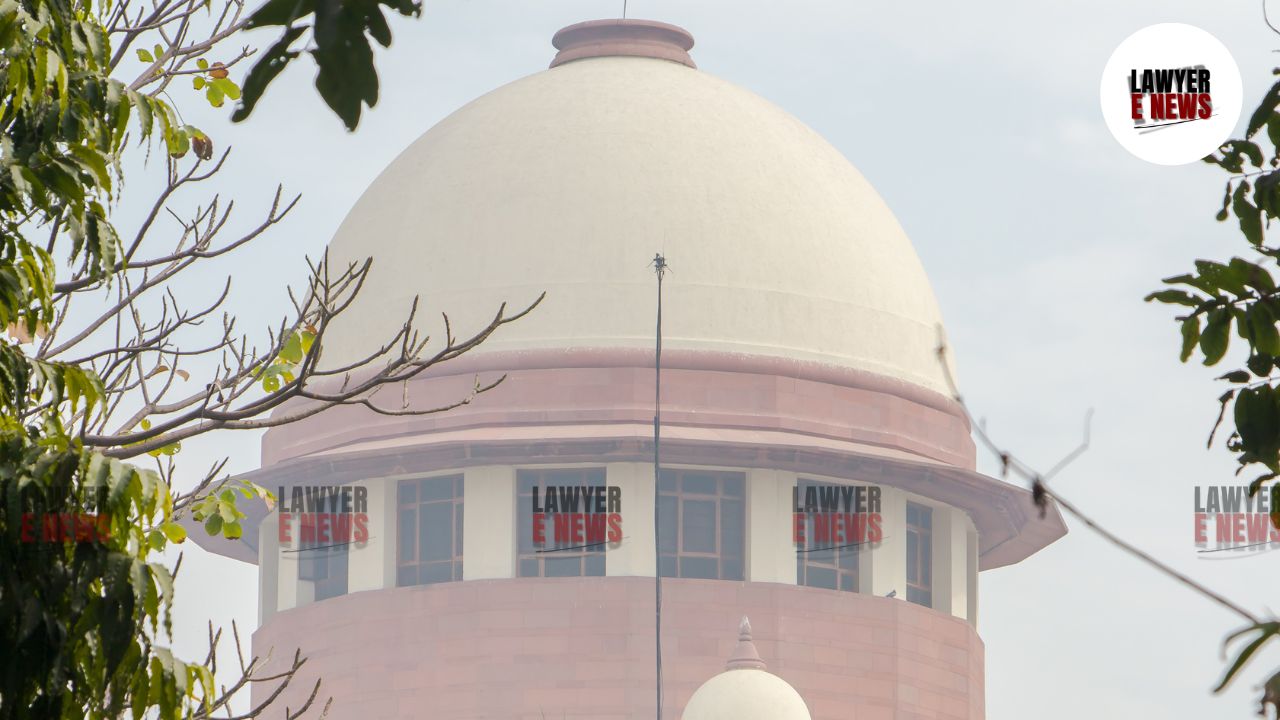-
by Admin
15 February 2026 5:35 AM



Once Conviction is Pronounced, Trial Court Becomes Functus Officio on Conviction; Only Sentencing Hearing Can Be Conducted by Successor Judge, held by the Supreme Court. Supreme Court dismissed an appeal seeking a fresh hearing on conviction due to the transfer of the original trial judge post-conviction. The appellant, convicted of offenses under Sections 376 and 506 of the Indian Penal Code (IPC), argued that a successor judge should re-hear both the conviction and sentence in light of procedural irregularities. The Court, however, held that once a conviction is pronounced, the trial court becomes functus officio (no longer has authority) on the matter of conviction, and only the sentencing hearing can be conducted by the successor judge.
Background of the Case
Harshad Gupta, the appellant, was charged with rape and criminal intimidation under Sections 376(1) and 506 of the IPC in 2013. The Additional Sessions Judge convicted him on April 30, 2015. However, before the sentence could be pronounced, the appellant applied for exemption from appearance, citing a road accident. Subsequently, the presiding judge was transferred, and a new judge was appointed. The appellant petitioned the High Court of Chhattisgarh to direct the new judge to re-hear the case on both conviction and sentence, arguing that Sections 353 and 354 CrPC required a complete re-hearing. The High Court rejected the plea, allowing only the sentencing to proceed before the successor judge.
Legal Issues at Hand
Successor Judge’s Role Post Conviction:
Whether a successor judge, after the transfer of the original trial judge, is required to re-hear the case on conviction under Section 235 CrPC or only on the sentence.
Procedural Compliance under Sections 353 and 354 CrPC:
Whether the original judgment of conviction complied with procedural requirements under Sections 353 and 354 of the CrPC.
Court’s Observations and Reasoning
Separate Stages of Conviction and Sentencing under Section 235 CrPC
The Court emphasized the bifurcated nature of Section 235 CrPC, which divides the judgment process into two distinct stages:
Conviction Stage: The judge pronounces the verdict on guilt after hearing the arguments.
Sentencing Stage: If the accused is convicted, a separate hearing on sentencing is conducted, allowing the convicted individual to present mitigating factors.
The Court observed:
"A plain reading of the provision leaves no room to doubt that a judgment of conviction shall have two components; namely, (i) Judgment on the point of conviction; and (ii) Where the accused is convicted, a separate order of sentence to be passed according to law, after hearing the accused on the question of sentence."
Since the original trial judge had already pronounced the conviction, the trial court became functus officio regarding the matter of conviction. The Court clarified that the only remaining task for the successor judge was to hear arguments on the quantum of sentence as per Section 235(2) CrPC.
Successor Judge’s Authority Limited to Sentencing
The appellant argued that the new judge should re-hear the case in full, citing procedural provisions in Sections 353 and 354 CrPC. However, the Court rejected this argument, stating:
"Once the judgment dated 30.04.2015 was pronounced, the conviction of the appellant stood finalized within the meaning of Section 235(1) of the Cr.P.C., whereupon the Trial Court became functus officio for the purpose of sub-section (1) of Section 235."
Thus, the successor judge was required to proceed only with the sentencing stage, as directed by the High Court.
Compliance with Sections 353 and 354 CrPC
The appellant claimed that the original judgment of conviction was not delivered in accordance with Sections 353 and 354 CrPC, rendering it invalid. However, the Court found no procedural irregularity, explaining:
"The Trial Court delivered a self-speaking judgment of conviction which satisfies all the constituents illustrated in Section 354(1) of the Cr.P.C. … The judgment of conviction was read out by the Presiding Officer in open court, in the presence of the appellant’s counsel."
The Court held that the conviction judgment was properly delivered in open court in compliance with Sections 353 and 354 CrPC, thereby making it valid and binding.
Conclusion and Order
The Supreme Court upheld the High Court’s order, affirming that the successor judge is only required to conduct the sentencing hearing under Section 235(2) CrPC. The appeal was dismissed, and the Court ordered:
Sentencing to Proceed Before Successor Judge: The successor judge was directed to conduct the sentencing hearing within one month.
Appellant’s Appearance Mandated: The appellant was instructed to surrender before the trial court on November 4, 2024, for judicial custody and to appear for the sentencing hearing.
Key Takeaways
Finality of Conviction Post-Pronouncement: Once a judgment of conviction is pronounced, the trial court becomes functus officio concerning the conviction, and only sentencing can be addressed by a successor judge.
Compliance with Procedural Provisions: A valid conviction judgment requires compliance with Sections 353 and 354 CrPC, but once delivered, it is not subject to re-hearing by a successor judge.
Separate Proceedings for Conviction and Sentence: Section 235 CrPC establishes a clear procedural separation between conviction and sentencing, emphasizing the right of the convicted individual to a hearing on sentencing.
Key Details
Date of Decision: October 1, 2024
Harshad Gupta v. The State of Chhattisgarh
